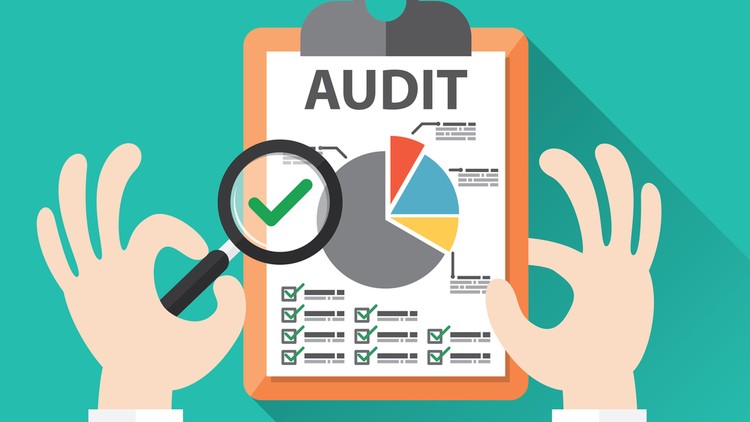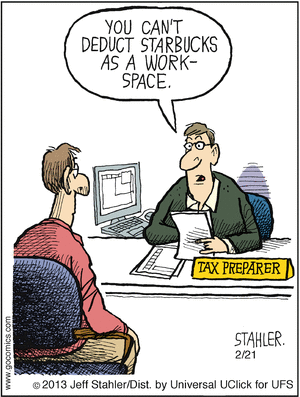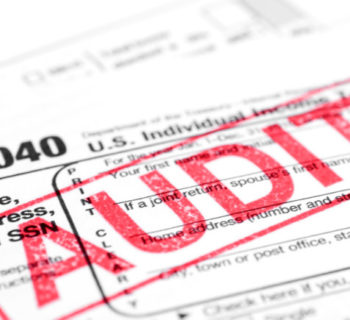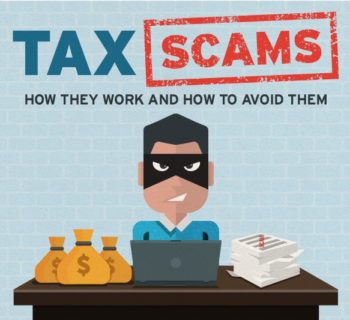 Tax season is upon us and both taxpayers and preparers have begun compiling income tax statements in order to meet the upcoming April 15th deadline. More than 196 million tax returns are expected to be filed this year and the IRS plans to continue its work combating tax fraud. Due to limited resources, the IRS has to be selective about whom they audit, targeting around 1/2 percent of all returns – less than half the amount they audited in 2010. According to IRS statistics, nearly 74 percent of tax year 2018 audits were conducted as “correspondence audits” with the balance considered “field audits”. (On a side note, of the nearly 1 million returns that were audited by the IRS, 30,000 audits resulted in a refund to the tax payer.)
Tax season is upon us and both taxpayers and preparers have begun compiling income tax statements in order to meet the upcoming April 15th deadline. More than 196 million tax returns are expected to be filed this year and the IRS plans to continue its work combating tax fraud. Due to limited resources, the IRS has to be selective about whom they audit, targeting around 1/2 percent of all returns – less than half the amount they audited in 2010. According to IRS statistics, nearly 74 percent of tax year 2018 audits were conducted as “correspondence audits” with the balance considered “field audits”. (On a side note, of the nearly 1 million returns that were audited by the IRS, 30,000 audits resulted in a refund to the tax payer.)
While the statistics might seem to be in your favor, audit rates may increase dramatically if your tax return contains certain red flags. Most of the issues the IRS is looking for are focused in areas where taxpayer abuse tends to be present. Consider reviewing the following red flags with your tax preparer as you attempt to reduce your chances of an audit this tax season.
Silly mistakes: Careless mistakes are one of the most common, yet easily avoidable audit red flags. From mathematical mistakes and transposed figures on your return to incorrect Social Security numbers and employer identification number inaccuracies, simple mistakes can lead to serious investigations. The IRS is usually quick to identify these errors, which may lead them to scrutinize other aspects of your return. Be sure to triple check your return prior to filing — even if you use a tax professional.
As you might imagine, with lower budgets and limited resources, the IRS must be strategic with who they target for an audit. After all, the stakes are higher and the IRS stands to collect more as taxpayer income increases. While earning money is not necessarily a bad thing, your chances of receiving an audit letter increase exponentially as income goes up. For example, in tax year 2018, audit rates were 0.54 percent for taxpayers earning between $50,000 and $75,000. Rates jumped to nearly 6.6 percent for taxpayers earning more than $10 million. Remember, higher earnings usually mean higher levels of IRS scrutiny.
Unreported income: From your employer and mortgage company to financial institutions and municipalities, there is no shortage of institutions sending important tax forms. The sheer number of documents has led some taxpayers to misplace forms or simply forget to claim income altogether. Since the IRS receives copies of many tax forms — including W2s, 1099s, 5498s for retirement plan balances and others — it is easy for them to cross-check and verify the data contained on your return. Forgetting to include interest from a bond investment or a capital gain from a stock sale can easily lead to additional IRS reviews. Consider taking an inventory of all income sources from last year and confirm that they and all new sources are properly accounted for.
Excessive deductions: The IRS maintains statistics on all taxpayers and compares your data to information from similar taxpayers at your income level. If you are claiming disproportionately high deductions as compared to your peers, the IRS may want to verify the data on your return. Everything from large charitable deductions to excessive home office deductions can lead to additional IRS scrutiny. Deduct everything that you are entitled to but be careful to maintain detailed records. For more information on home office expenses, consider sitting down with your tax adviser to review “Publication 587 — Business use of a home.”
Cash industries: If you own a business that operates primarily with cash, your return may be more likely to be targeted for an audit. Additionally, workers who receive a large portion of their income from tips should be especially careful. The IRS understands that the use of cash can lead to inaccuracies in the reporting of income and expenses and they often review these industries more closely.
income from tips should be especially careful. The IRS understands that the use of cash can lead to inaccuracies in the reporting of income and expenses and they often review these industries more closely.
Deducting personal expenses on your business return: Many business owners have difficulty distinguishing between personal and business expenses. While this can be due to poor record keeping and the commingling of personal and business accounts, the IRS is fully aware that some taxpayers simply choose to push the envelope by attempting to turn personal expenses into deductible business expenses. The IRS is always on the lookout for personal meals, entertainment and travel expenses masquerading as legitimate business expenses. Consider reviewing “Publication 463 — Travel, Entertainment, Gift and Car Expenses,” to ensure that you are properly deducting these expenses.
 While there are many items that could trigger an additional review by the IRS, a careful and thorough approach to tax planning may help reduce your chances. Be sure to work carefully with your tax adviser to ensure that you are taking deductions that you are legitimately entitled to while also maintaining complete and accurate records. Since everyone’s tax situation is unique, consider speaking to your accountant to determine the appropriate approach for you.
While there are many items that could trigger an additional review by the IRS, a careful and thorough approach to tax planning may help reduce your chances. Be sure to work carefully with your tax adviser to ensure that you are taking deductions that you are legitimately entitled to while also maintaining complete and accurate records. Since everyone’s tax situation is unique, consider speaking to your accountant to determine the appropriate approach for you.
Kurt J. Rossi, MBA, CFP, CRPC, AIF, is a certified financial planner practitioner and wealth advisor. He can be reached for questions at (732) 280-7550, kurt.rossi@Independentwm.com or www.Independentwm.com. LPL Financial Member FINRA/SIPC. CRPC Conferred by College for Financial Planning










